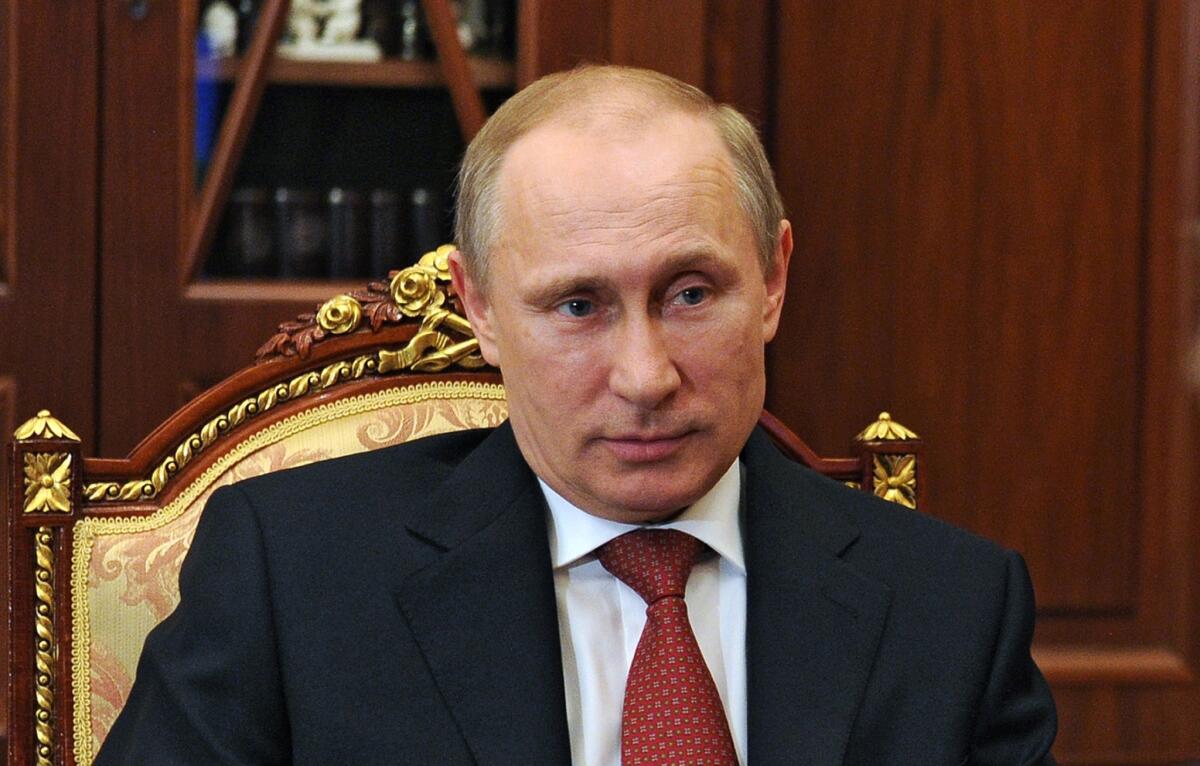Profanity in Russian novels? Now there are boundaries

- Share via
Russia has a great literary tradition, but new regulations there will place boundaries around what people can read. A book that includes profanity may only be sold in a sealed package, with a sticker announcing “Contains obscene language.”
It’s not just books. CNN reports that the new legislation, signed by Vladimir Putin on Monday, bans swearing at art and culture events. Films that contain profanity will not be approved for distribution.
Last month, media outlets faced new regulations that would fine them for running swear words in print or online. But, the Guardian writes, “the rules were vague, and no list of prohibited language has been issued.”
Under Putin’s leadership, Russia has grown increasingly stringent about cultural rules. The members of the feminist-art group Pussy Riot were imprisoned after trying to perform a punk song in a cathedral.
The new law, slated to take effect in July, is expected to apply only to newly released works.
But if censoring profanity is just one component of a larger censorship drive, classic Russian literature may be in trouble. Take, for example, Fyodor Dostoevsky’s “Notes from the Underground,” which begins,
“I am a sick man.... I am a spiteful man. I am an unattractive man. I believe my liver is diseased... My liver is bad, well--let it get worse! I have been going on like that for a long time--twenty years. Now I am forty. I used to be in the government service, but am no longer. I was a spiteful official. I was rude and took pleasure in being so. I did not take bribes, you see, so I was bound to find a recompense in that, at least. (A poor jest, but I will not scratch it out. I wrote it thinking it would sound very witty; but now that I have seen myself that I only wanted to show off in a despicable way, I will not scratch it out on purpose!)”
There is plenty in that passage for a censorious official to find offensive, despite there not being a single dirty word.
More to Read
Sign up for our Book Club newsletter
Get the latest news, events and more from the Los Angeles Times Book Club, and help us get L.A. reading and talking.
You may occasionally receive promotional content from the Los Angeles Times.











